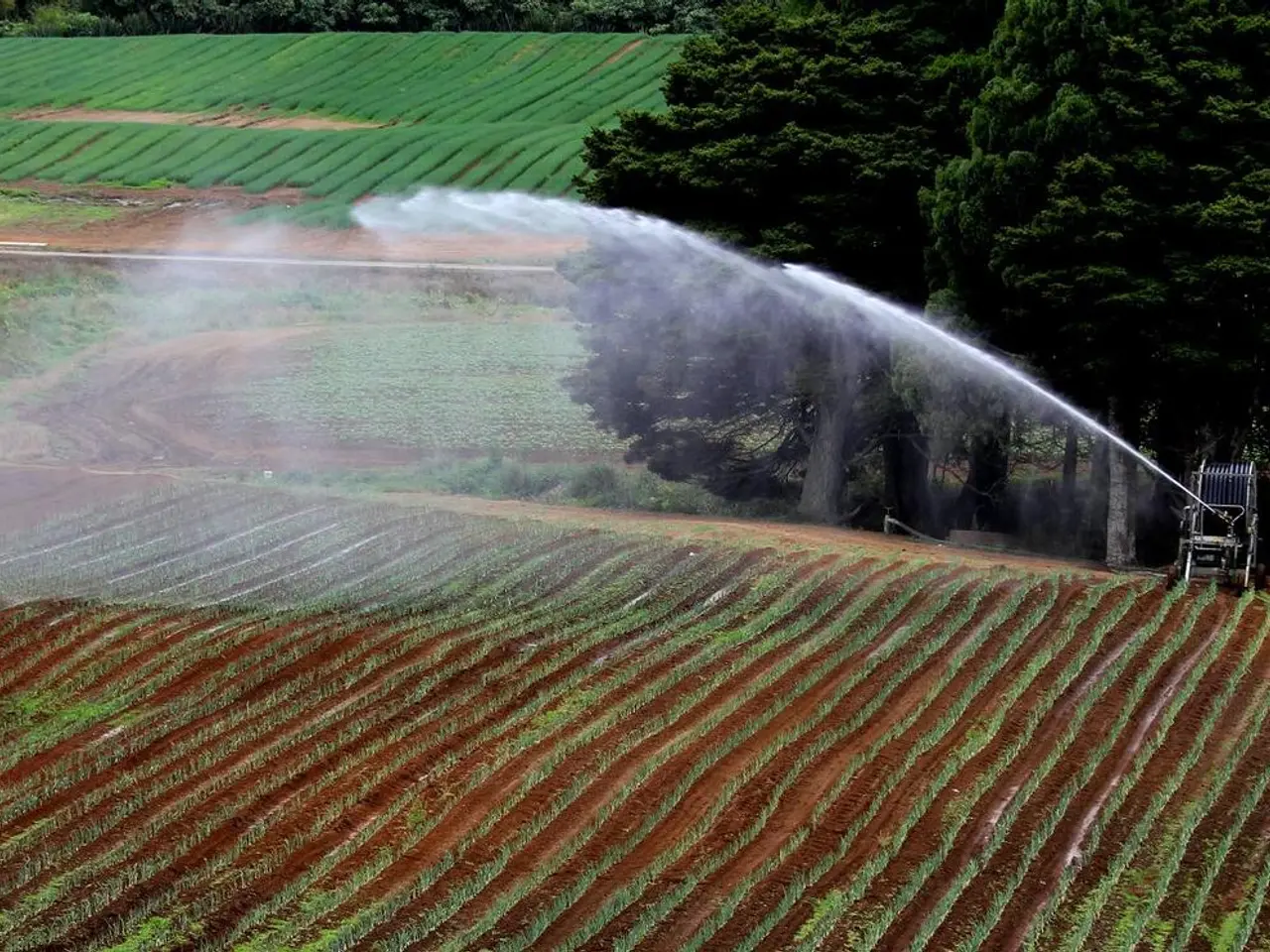Impact of Rainfall on Alphonso Mangoes: Striking the Right Balance for Superior Quality
=================================================================================
In the Konkan region of India, known for its lush greenery and tropical climate, the Alphonso mango reigns supreme. However, growing these delicious fruits requires careful management, especially when it comes to rainfall.
Regulated rainfall is essential for Alphonso mango growth. Regular, moderate rainfall after the fruit has set helps avoid issues such as fruit splitting, decreased sugar content, and fungal diseases. On the other hand, extended dry spells can put mango trees under stress, resulting in lower fruit set and yields, and smaller, less flavorful fruits.
To manage rainfall on mango farmland and optimize Alphonso mango quality while mitigating climate change effects, farmers should implement proper water management practices, protect flowers and fruits from unseasonal rains, and adopt irrigation systems that simulate natural rainfall.
One approach is preventing losses from unseasonal rains. Alphonso mangoes are particularly vulnerable to damage during flowering and harvest due to heavy rains, hailstorms, and strong winds, causing flower drop and fruit damage, leading to significant yield loss.
Controlled irrigation systems can help regulate water timing and amounts, avoiding the stress of excess or deficient water during critical growth phases and thereby improving fruit quality. Installing rain irrigation systems that mimic natural rainfall is a key strategy in this regard.
Adopting climate-resilient orchard practices is another essential strategy. This includes planting during cooler, optimal periods, grafting techniques that strengthen plants, and protecting trees from weather extremes like frost and hail.
Farmers can also prepare for possible rainfall problems by keeping up with weather patterns and forecasts, and modifying irrigation schedules and drainage strategies accordingly. Implementing drainage systems helps prevent flooding and reduces the risk of fungal infections and fruit splitting in Alphonso mango farmland.
The use of fungicides and maintaining proper orchard cleanliness are effective methods for managing fungal diseases in Alphonso mango farmland. Regular monitoring of fruit growth stages and soil moisture levels enables timely interventions, such as adjusting watering techniques or implementing disease-prevention measures.
Ongoing studies on mango production in climate-variable environments can yield fresh perspectives and innovative solutions for better controlling precipitation and preserving fruit quality. Participating in regional networks such as the DFNet Project fosters knowledge sharing on climate-smart agricultural practices and novel mitigation technologies tailored for tropical fruit production.
In conclusion, understanding the impact of rain on Alphonso mango growth is crucial for producers. By implementing these strategies, farmers can maintain Alphonso mango quality, reduce damage caused by erratic rainfall, control soil moisture for healthy fruit development, and build resilience against climate variability. Integrating these with local weather monitoring and forecasting further enhances decision-making for irrigation and protective measures.
- Implementing environmental-science-based strategies such as climate-resilient orchard practices, irrigation systems that simulate natural rainfall, and drainage systems can help manage water in Alphonso mango farmland, optimize quality, and mitigate the effects of climate-change on the fruit's growth.
- Science plays a crucial role in weather-forecasting, enabling farmers to prepare for possible rainfall problems by modifying irrigation schedules and drainage strategies according to forecasts, ultimately reducing damage caused by erratic rainfall.
- Ongoing research in the field of environmental-science, particularly on mango production in climate-variable environments, can provide fresh perspectives and innovative solutions for better controlling precipitation and preserving fruit quality, contributing to the sustainability of mango farmland.








